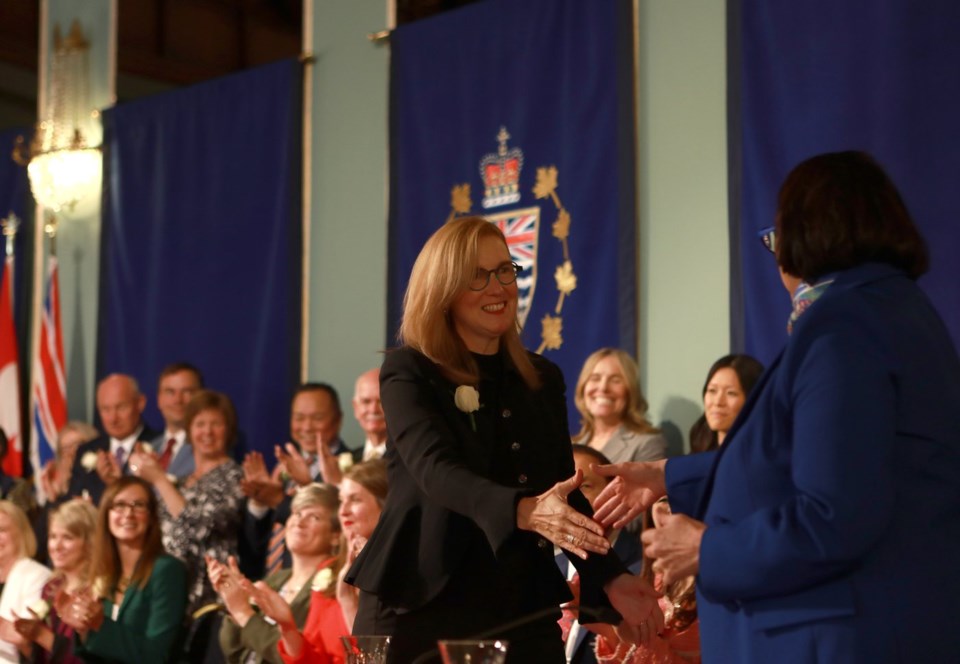VICTORIA — British Columbia Premier David Eby says there has been chaos and confusion trying to understand "conflicting messages" coming from Washington as the prospect of U.S. tariffs on Canadian goods on Saturday closes in.
Eby says "it's hard to make sense" of exactly what has been happening with B.C.'s "closest friend and trading partner," after a report emerged that the duties might be delayed for a month.
But U.S. President Donald Trump says he is pressing on with the tariffs on Saturday.
Eby says his new "war room" committee tasked with responding to the tariffs met Friday morning, and provincial officials were working closely with business and labour leaders, as well as First Nations and other stakeholders.
He says the meeting included discussions about strengthening B.C.'s supply chains, reducing trade barriers between provinces, and helping people buy Canadian-made products.
Eby told reporters on a video call that he hopes Trump listens to advisers about the harmful impacts of the promised 25 per cent tariffs, but B.C. is "ready for the fight" if the president's plan goes ahead on Saturday.
"Obviously, this morning already we've had morning of chaos and confusion in terms of trying to understand what is happening at the White House, the chaos there, the conflicting messages." he said.
He said it was "hard not to think that this uncertainty (from) the White House, the chaos that seems to be coming from there, is actually part of an overall strategy to destabilize key trading partners."
But rather than speculate, the premier said B.C. must prepare to support workers, families and businesses.
Eby's comments Friday came shortly after Finance Minister Brenda Bailey held an annual meeting with the Economic Forecast Council for B.C.
Bailey said in a statement that she expects uncertainty and instability over the four years of Trump's presidency, but the private-sector forecasters indicate the province is in a good position to meet the challenges of the promised tariffs.
She said the council consisting of 13 independent forecasters from across Canada indicated the uncertainty of "threats from the south" may make the budget process more challenging than usual.
But she said the council told her the diversity of B.C.'s economy made it "well-positioned" to attract new investment and development opportunities.
The Ministry of Finance statement said B.C.'s outlook is affected by global and domestic forces, including federal immigration targets.
Still, it said the forecasters "reaffirmed that in the absence of tariffs, they had expected steady economic growth for B.C."
The council estimates that real GDP in B.C. grew by 1.2 per cent last year, higher than the province's projection in the fall 2024 economic update, the statement says.
It says the council indicated a diverse export network and resource-rich environment give B.C. an advantage over other provinces, and some members were "encouraged" by the province's work to address housing supply, affordability and skills training.
In early January, it says the council forecasted real GPD growth of 1.9 per cent in 2025 and steady growth of two per cent annually on average through 2029, although the projections do not fully reflect the impact of potential U.S. tariffs.
The council will have an opportunity to revise its forecasts before B.C. is set to release its provincial budget on March 4, it adds.
— With files from Brenna Owen in Vancouver
This report by The Canadian Press was first published Jan. 31, 2025.
Marcy Nicholson, The Canadian Press



